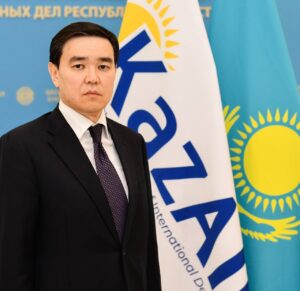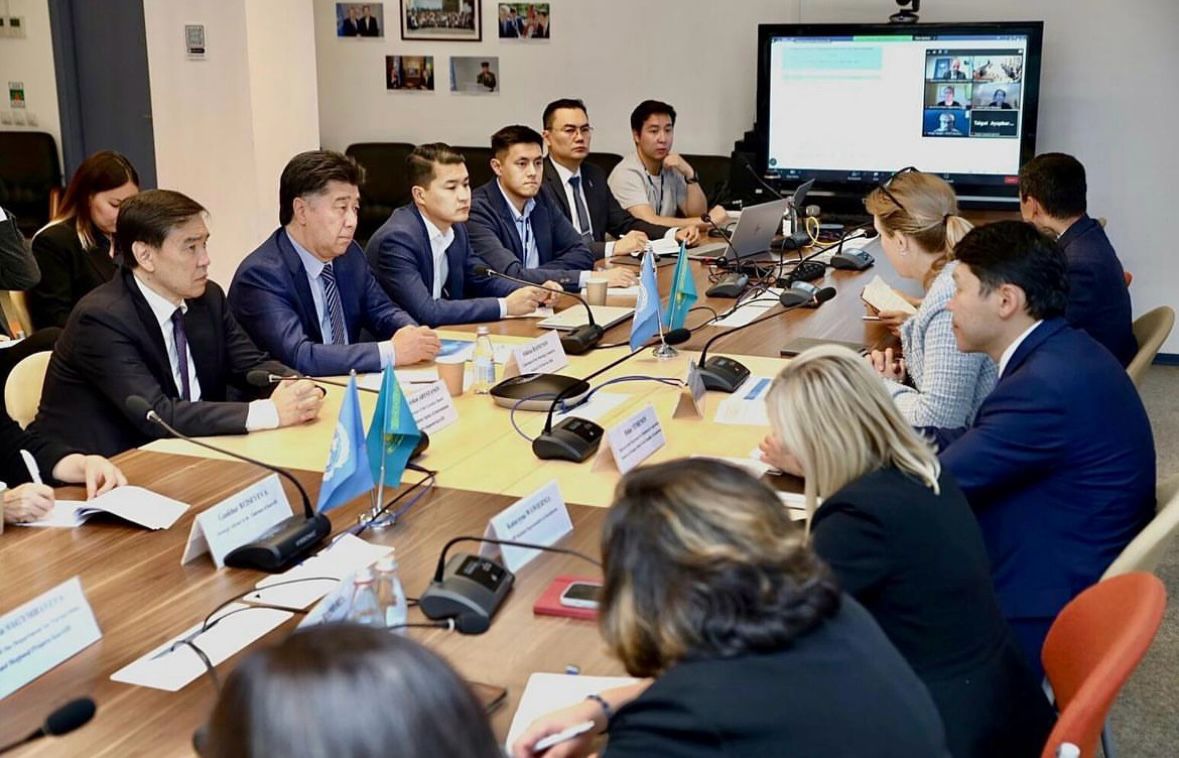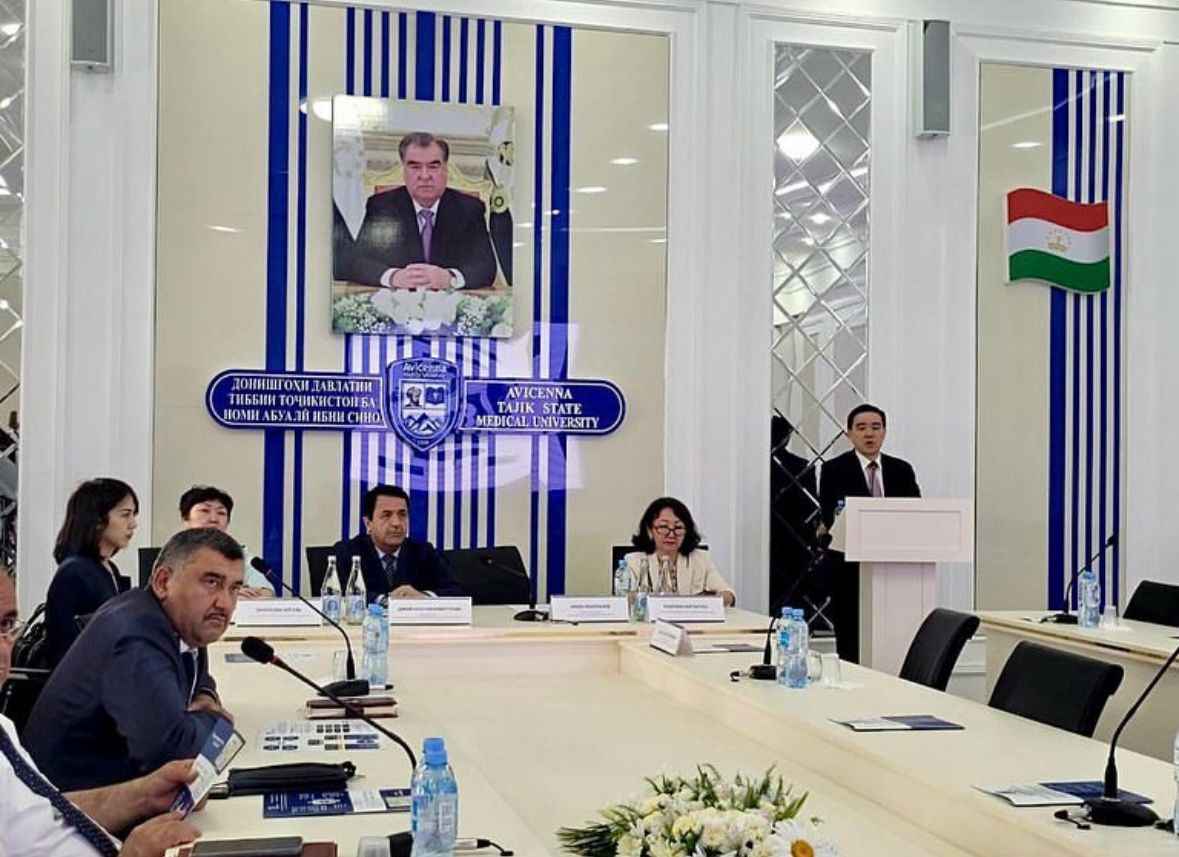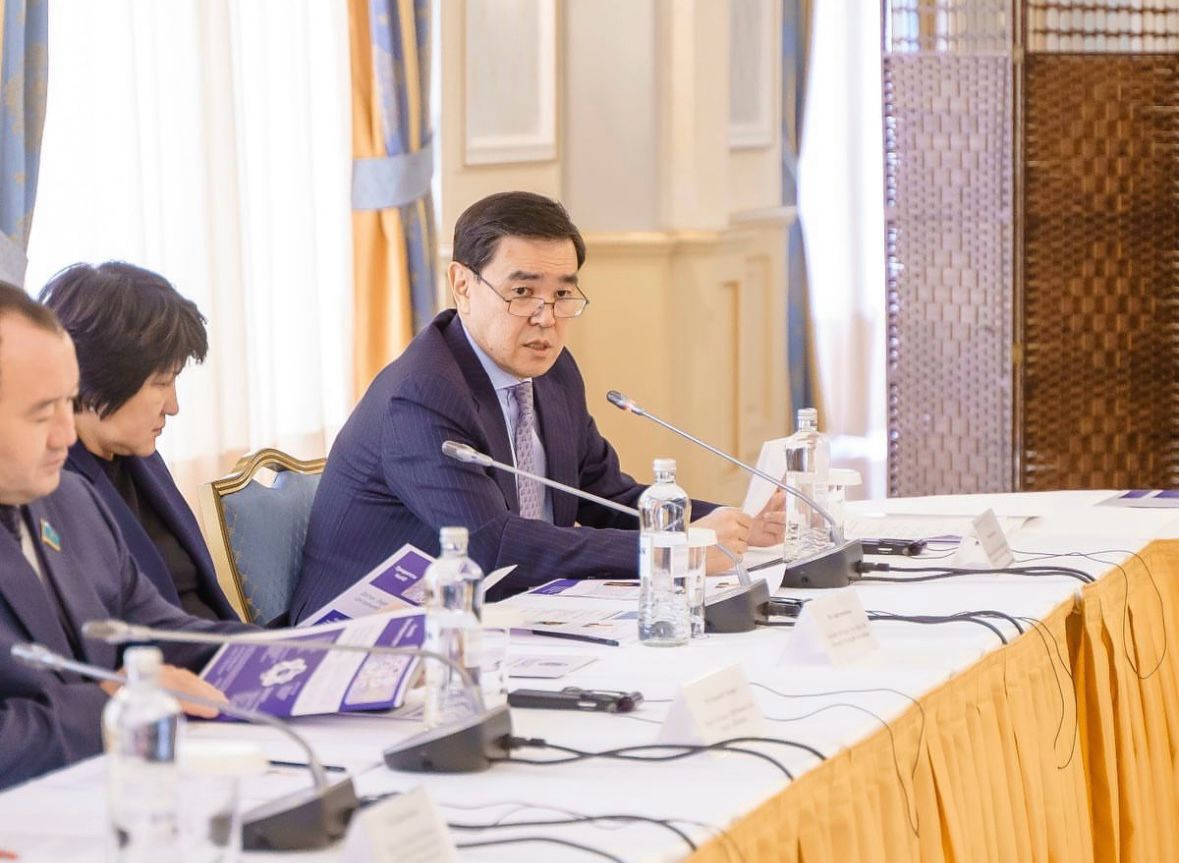ASTANA – Kazakhstan Agency of International Development (KazAID) serves as yet another diplomatic tool in the country’s arsenal, pursuing state policy in the official development assistance (ODA). The Astana Times interviewed KazAID Chairman Arken Arystanov to learn the details of the ongoing projects, results and prospects for the development of regional and international cooperation.

Arken Arystanov.
“ODA used to be part of the Western countries’ purview aimed at minimizing the adverse impacts of the economic lag faced by third-world countries. Gradually, it has transformed into an integral part of foreign policy,” said Arystanov.
First and foremost, the mission of the agency is to promote sustainable development and inclusive growth in partner countries by providing results-oriented technical assistance. On top of that, KazAID propels its national brand by creating a favorable environment for the implementation of international initiatives and business positioning, as well as providing advisory services based on the research of the needs of partner countries.
Kazakhstan introduced the ODA law back in 2014. The government decree, which established the KazAID national operator, was adopted in 2020. A year later, Kazakh President Kassym-Jomart Tokayev outlined the ODA policy for 2021-2025.

The briefing with the United Nations Development Programme (UNDP) on Aug. 28 last year. Participants addressed the ODA priorities. Photo credit: KazAID.
For the three decades of its independence, Kazakhstan allocated $600 million for humanitarian and development assistance. As part of its work in 2022, KazAID provided ODA in the amount of over $36 million, according to Arystanov.
“ODA and humanitarian aid serve distinct purposes in international relations. Humanitarian aid responds to unforeseen crises like natural disasters or conflicts, providing urgent support such as food, clothing, and financial aid for reconstruction. In contrast, ODA focuses on long-term economic, political, and social improvement, for example, through programs in education, infrastructure development, and training local specialists,” explained Arystanov.
International cooperation and global-scale ambitions
KazAID has signed 22 memorandums with foreign partners so far. Eight of them were agreed with international cooperation agencies – Azerbaijan’s International Development Agency (AIDA), Israel’s Agency for International Development Cooperation (MASHAV), Japan’s International Cooperation Agency (JICA), Lithuania’s Central Project Management Agency (CPVA), South Korea’s International Cooperation Agency (KOICA), Spain’s Agency for International Development Cooperation (AECID), Türkiye’s Cooperation and Coordination Agency (TIKA), and the U.S. Agency for International Development (USAID).

Last year’s seminar on the development of higher medical education in Central Asia in the Avicenna Tajik State Medical University (ATSMU) in Dushanbe. Photo credit: KazAID.
“We continue to work on expanding partnerships and developing programs and projects with donor organizations in bilateral and multilateral formats. As the only ODA organization in Central Asia, KazAID plans to implement promising projects in the region through the use of trilateral cooperation mechanisms with the participation of donor country, partner country, and donor organization,” said Arystanov.
Last year, the Kazakh government signed a roadmap with the Organization for Economic Co-operation and Development (OECD) for improving the efficiency of the ODA system in Kazakhstan.
“In the next three years, the cooperation between KazAID and the OECD will focus on improving the quality of static data, raising awareness, and requesting support from the government and the public,” said Arystanov.
In the long term, KazAID hopes to become a member of the OECD Development Assistance Committee (DAC), a venue and voice of the world’s 32 major donor countries. The forum coordinates aid efforts toward implementing the 2030 Agenda for Sustainable Development.
Today, KazAID activities encompass the implementation of 11 projects.
One of them provides for the participation in the construction of a school in the Nurdagi district of the Gaziantep Province in Türkiye. The idea was put forward by Kazakh President Kassym-Jomart Tokayev following the devastating earthquake a year ago, which took the lives of more than 55,000 Turkish and Syrian people. On this occasion, the head of state stressed the importance of supporting the unity of the Turkic world.
Another initiative is the Kurmangazy Center for Children’s Creative Development in the Azerbaijani city of Fuzuli, constructed by Kazakhstan’s BI Group holding. The project reflects the willingness to support the future generation of the brotherly nation. Vocals and musical instruments, robotics, 3D modeling, web design, photo and video shooting, as well as carpet weaving and pottery will be at the core of the center’s educational program.
“The center will be a gift from the Kazakh nation to the Azerbaijani people, embodying friendship, brotherhood and mutual support between our countries. The two-story building with an area of 3,100 square meters will be designed for 600 students,” said Arystanov.
Central Asia is a priority
KazAID aims to contribute to regional development, integration, and security.

In October last year, KazAID held a roundtable with domestic structures on the state and prospects for Kazakhstan’s ODA development. Photo credit: KazAID.
“The agency perceives its role as addressing regional challenges, which include lowering trade barriers, contributing to the rational use of water resources, fostering agricultural growth, addressing environmental concerns, and enhancing the overall appeal of the region for investment in sustainable development projects. We aim to facilitate the accessibility of our technologies and expertise to neighboring markets,” said Arystanov.
The diplomat noted that Central Asia is now “strengthening its subjectivity as a single region.” KazAID, in turn, strives to create a favorable environment for its capacity-building.
Arystanov noted that the programs within Central Asian cooperation are aimed at supporting young professionals and improving access to education, health care, and modern technologies.
“We contribute to the strengthening of regional cooperation and solving urgent problems of neighboring countries,” he said.
One of them is the Dostyk Diplomacy annual program that ensures educational exchange between the participants. Training courses on economic diplomacy, trade development, and management of water resources and transboundary rivers are organized by the Institute of Diplomacy, Academy of Public Administration under the President of Kazakhstan. It is expected that the initiative will form a scientific, educational, and dialogue platform for young talents.
Dostyk Digitalization, another KazAID project, seeks to attract IT professionals. The fast-growing IT sector in Kazakhstan boasts a huge system of cutting-edge projects, especially in the e-government. The agency facilitates the country’s efforts in sharing knowledge with foreign partners.
In 2024, Dostyk Digitalization will be carried out with the Singaporean Foreign Ministry based on an intergovernmental memorandum between the two countries. The project, Arystanov added, will allow Kazakh experts in public administration to offer their consulting services.
To promote regional cooperation in medical education, KazAID and the Astana Medical University (MUA) launched the Avicenna program to foster academic mobility to improve skills and expand Central Asian professional networks. Avicenna also envisages the provision of medical equipment.
Long-term plans
The head of the agency shared other initiatives to be implemented in the long run. He brought an example of the Kazakhstan Knowledge Bank project.
“The idea is to create an information base of domestic knowledge, competencies, and technologies, where Kazakhstan has a competitive advantage. In the future, interested countries will have the opportunity to study specific areas and the possibility of implementing them in their own country,” he said.
Arystanov noted that a similar database exists in Norway and South Korea alongside other countries.
Two more initiatives, Green School and Green Office, will target schoolchildren and employees of environmental organizations.
“Both projects will promote environmental knowledge and practices, contributing to raising environmental awareness and responsibility among both the younger generation and the business community. This, in turn, should lead to the formation of a sustainable ecological culture in society and reduce the ecological footprint, particularly through effective waste management,” said Arystanov.
In addition, KazAID plans to enhance interaction with Kazakhstan’s National Volunteer Network and strengthen the volunteer movement in Central Asia. Specialists consider improving preparedness for emergency situations.
“Another example is a project aimed at training volunteer coordinators and volunteers to work in emergency situations, including drone control, first aid, psychosocial support, and rescue operations. Trained specialists will be ready to provide assistance not only in Kazakhstan but also in other Central Asian countries in case of emergency,” he said.
The agency has also established cooperation with domestic structures, for instance, with the Kazakhstan Association for Civil Society Development (ARGO), the Institute of Diplomacy, the Academy of Public Administration under the President of Kazakhstan, and the International Fund for Saving the Aral Sea (IFAS), as well as with the leading Kazakh universities, including Maqsut Narikbayev University and MUA.

